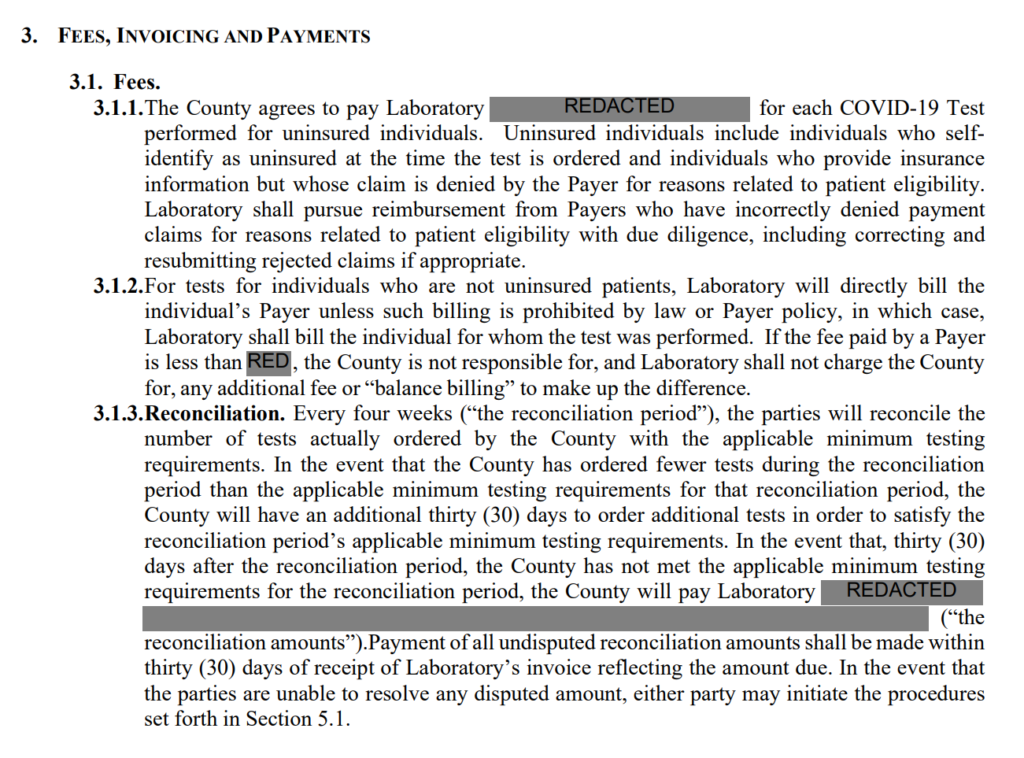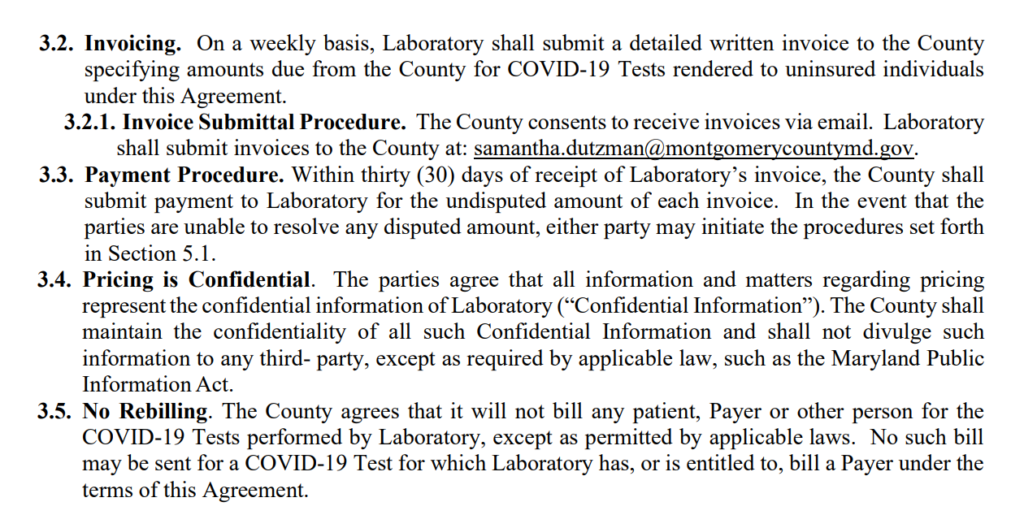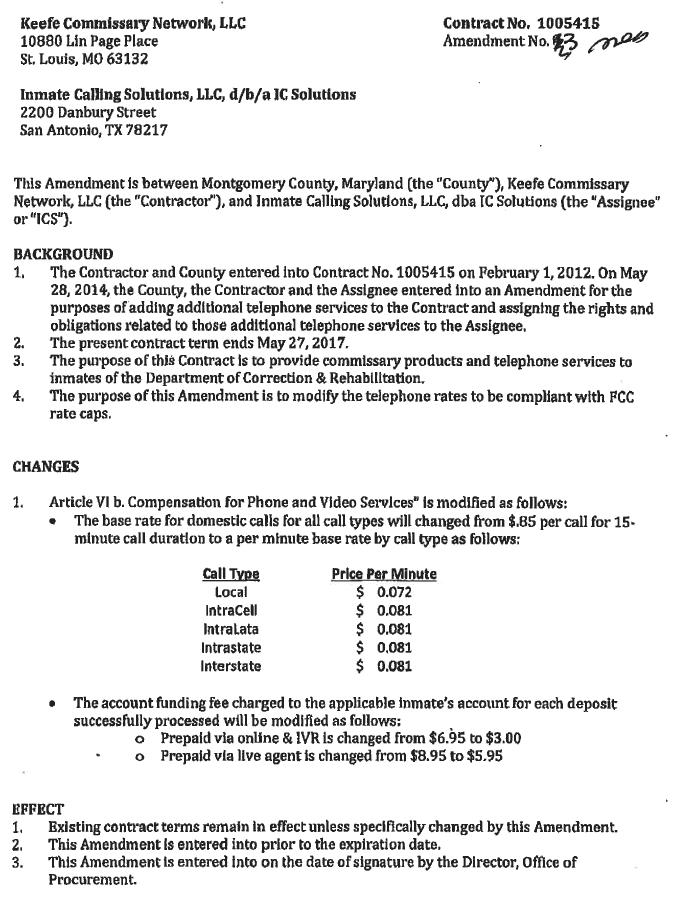By Adam Pagnucco.
Stories in Bethesda Beat and the Washington Post have confirmed a disturbing aspect of the dispute between Montgomery County and Rockville lab AdvaGenix, with which the county had a contract to provide COVID tests that was later terminated. Specifically, the county’s contract with AdvaGenix prohibits it from disclosing to the public how much it is obligated to pay the company.
Bethesda Beat filed a Maryland Public Information Act (MPIA) request with the county to obtain its contracts with AdvaGenix and Bio-Reference Laboratories, another testing lab. According to Bethesda Beat, the county took 53 days to answer the request despite plainly having the contracts in its possession, a violation of the 30-day requirement in state law. Both contracts had pricing terms redacted.
The images below are from the AdvaGenix contract as posted online by the Washington Post. Note how pricing references are redacted and the parties agreed to keep “all information and matters regarding pricing” confidential.


The county’s public information officer cites provisions in the MPIA preventing disclosure of trade secrets as the reason for redacting pricing data in the contract. He has a point: according to the state’s Attorney General, the MPIA indeed “prevents disclosure of trade secrets, confidential commercial or financial information, and confidential geological or geophysical information, if that information is furnished by or obtained from any person or governmental unit.” However, that doesn’t mean that the county had to agree to specific contract provisions keeping pricing confidential. In fact, the county’s MPIA response database is full of requests for and disclosures of county contract information, including pricing schedules.

A contractor’s pricing schedule for inmate phone calls released in response to an MPIA request.
Pricing secrecy benefits a county contractor in two ways. First, if the company’s pricing is protected from disclosure, that makes it harder for a potential competitor to undercut it in the future. Second, secrecy makes it easier for a contractor to charge higher prices to other customers. For example, if another county knows that the company is charging MoCo X dollars per unit, why would it agree to pay more? This is all very helpful to contractors but not so helpful to taxpayers.
MoCo’s secrecy agreement occurs in a context of widespread variation of COVID test prices. The New York Times reported that COVID test charges in Texas vary from $27 to $2,315 per test. That range is facilitated by the common practice of hospitals and insurers to keep COVID test prices secret, as MoCo does. Last year, President Donald Trump issued an executive order requiring hospitals “to publicly post standard charge information, including charges and information based on negotiated rates and for common or shoppable items and services, in an easy-to-understand, consumer-friendly, and machine-readable format using consensus-based data standards that will meaningfully inform patients’ decision making and allow patients to compare prices across hospitals.” When the American Hospital Association sued to keep prices secret, it lost in U.S. District Court. (It will no doubt appeal.)
Montgomery County Government is actually more anti-transparency in the case of COVID test pricing than Donald Trump. Think about that.
Unlike out-of-pocket costs paid by hospital patients, MoCo’s testing costs don’t directly hit the wallets of those being tested. But they do hit residents’ wallets through their tax bills. On top of that, possible litigation with AdvaGenix looms. The fact that MoCo taxpayers do not know how their tax dollars are being spent is highly problematic. And that is the case because their county government wants it that way.
